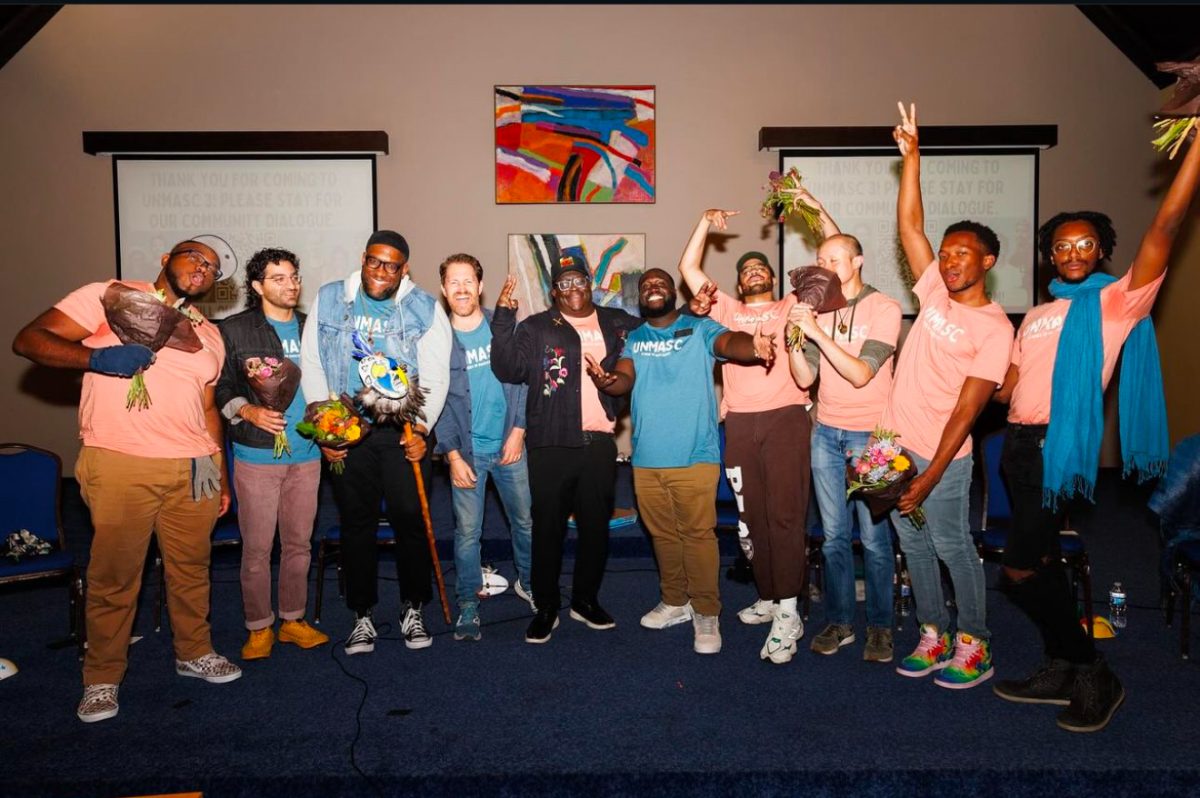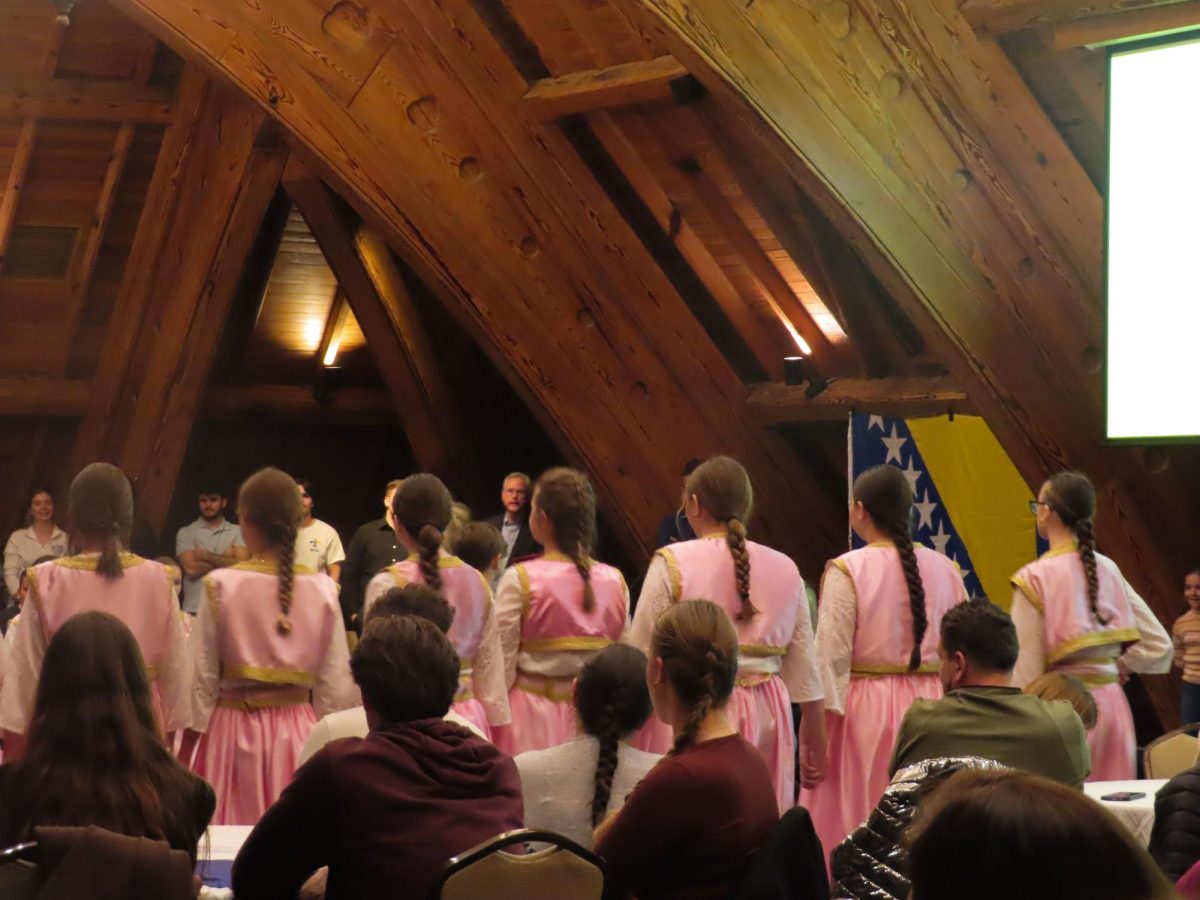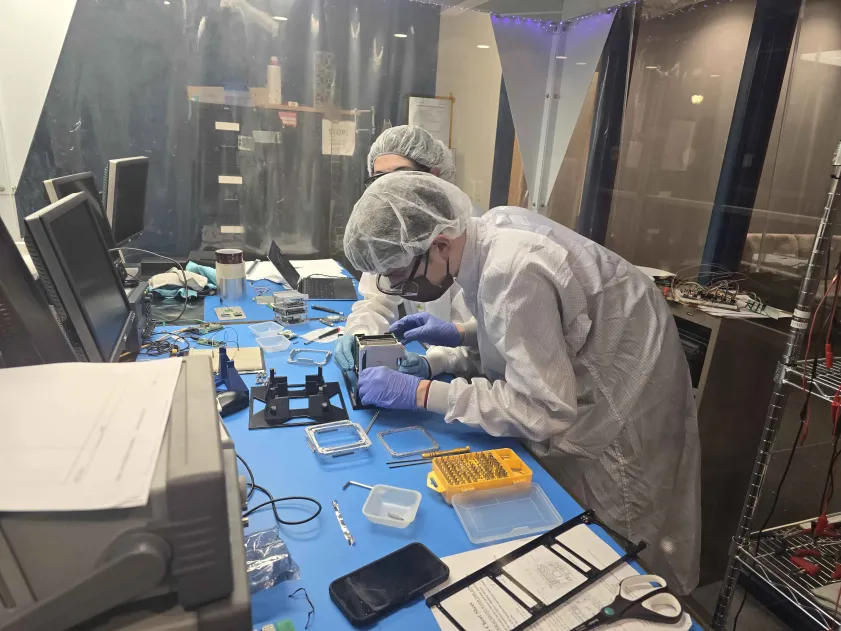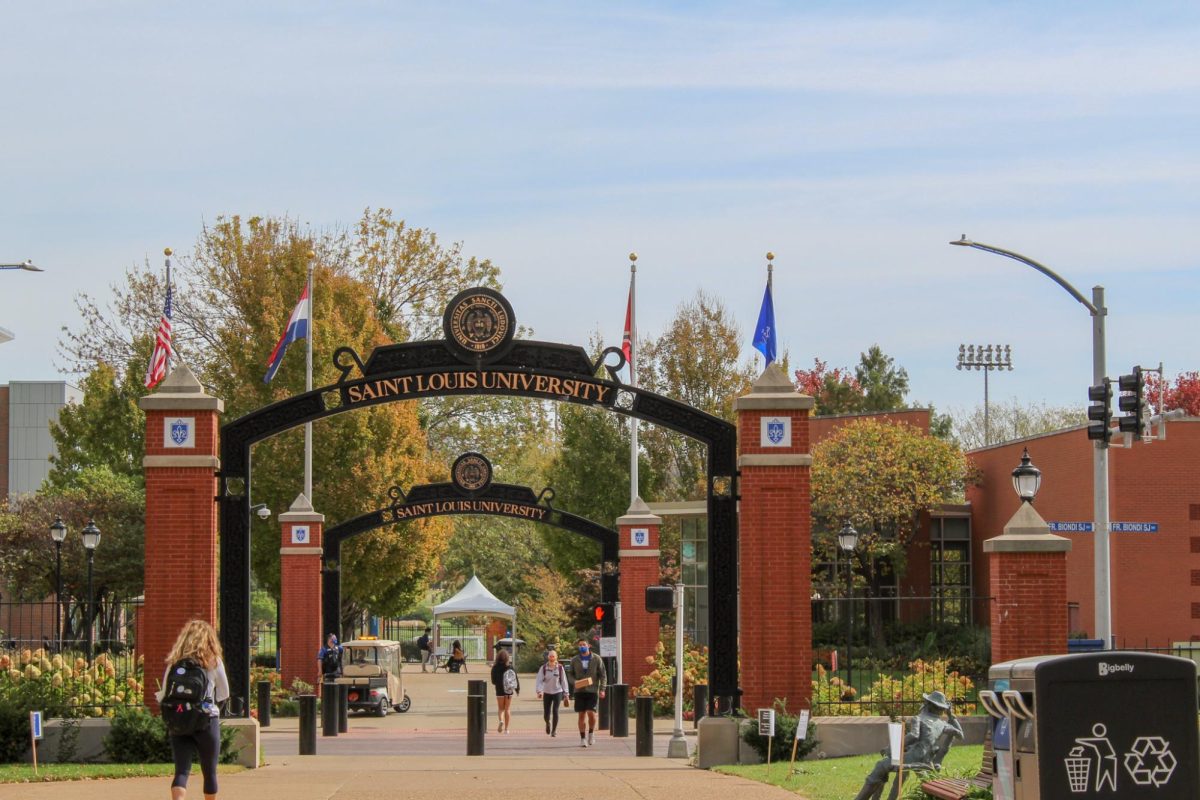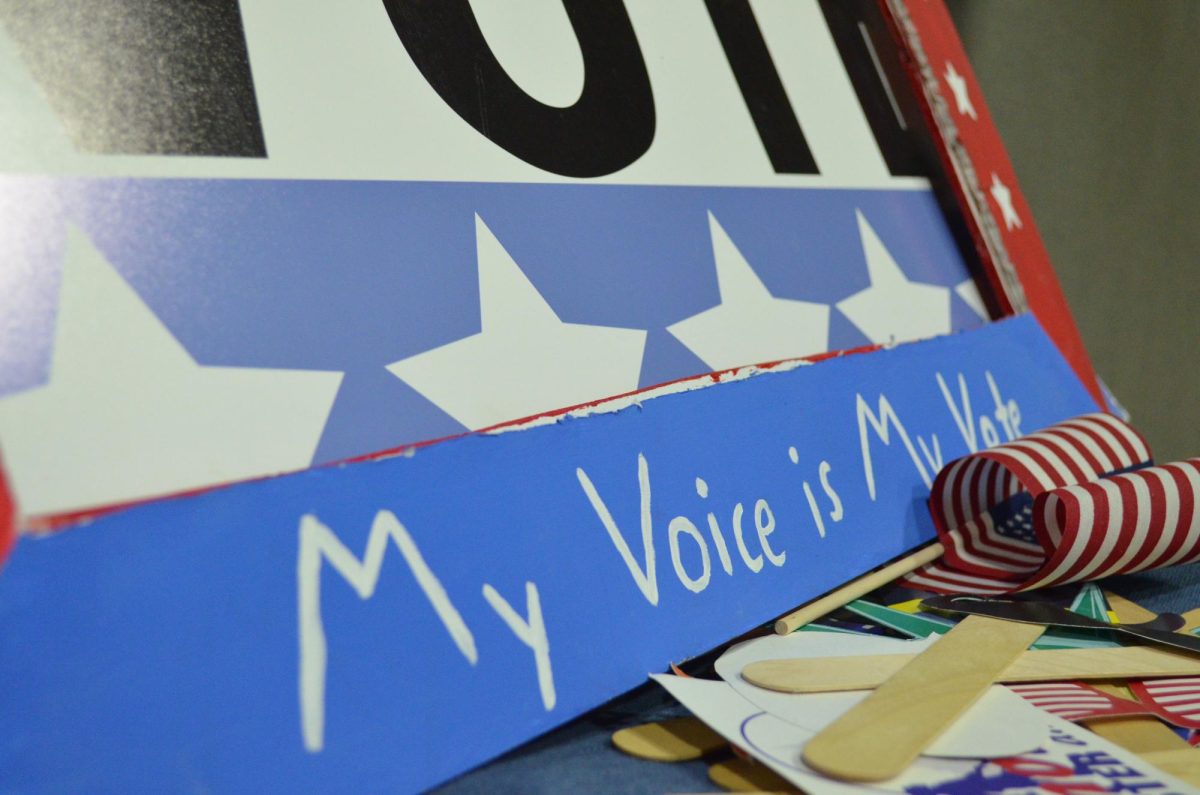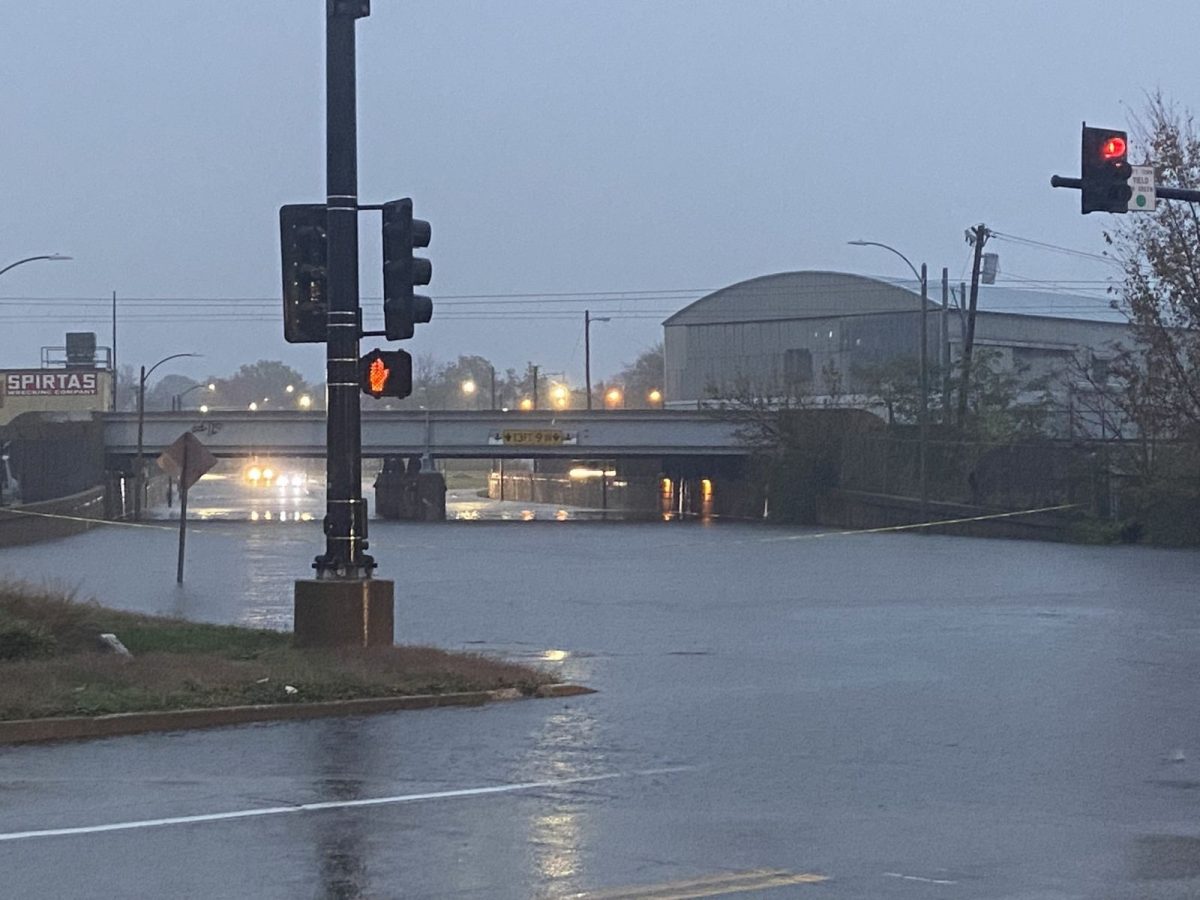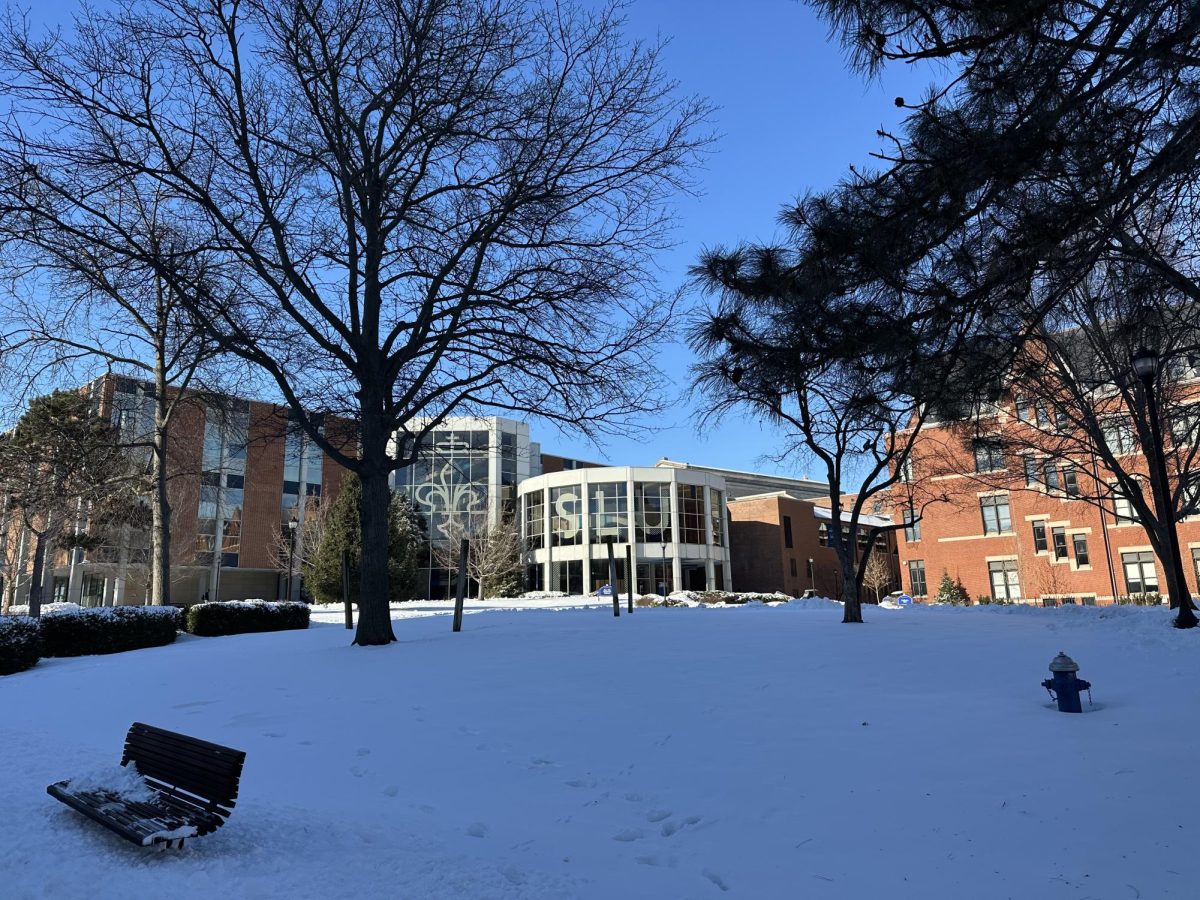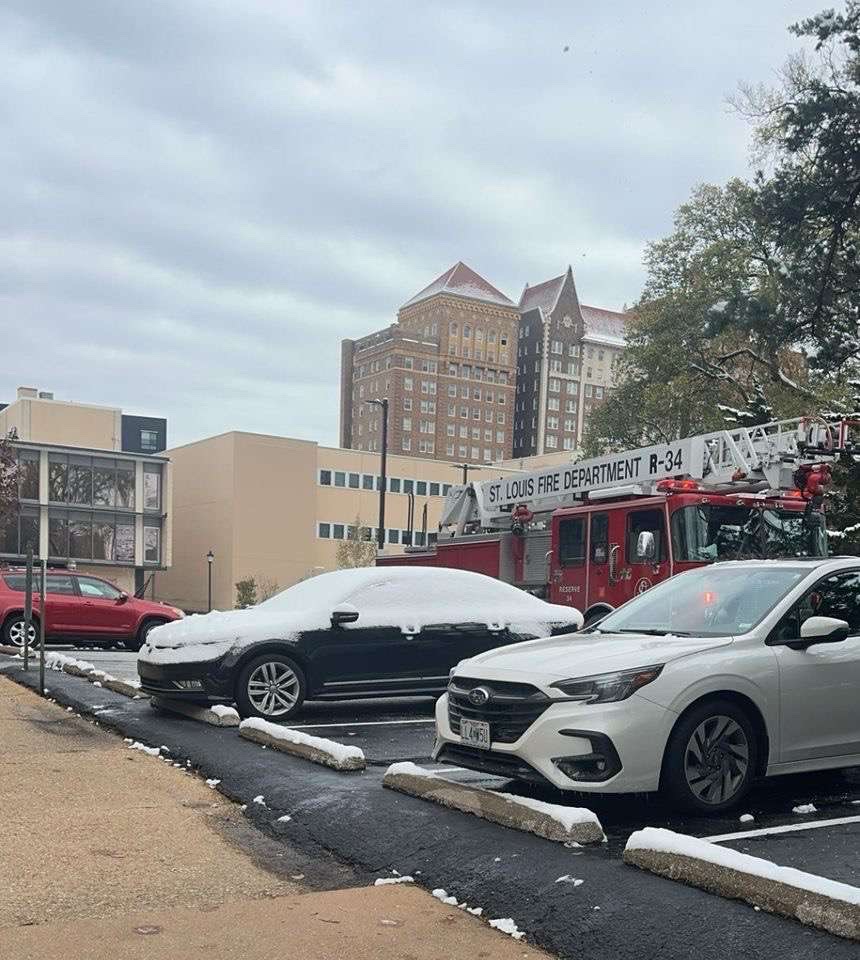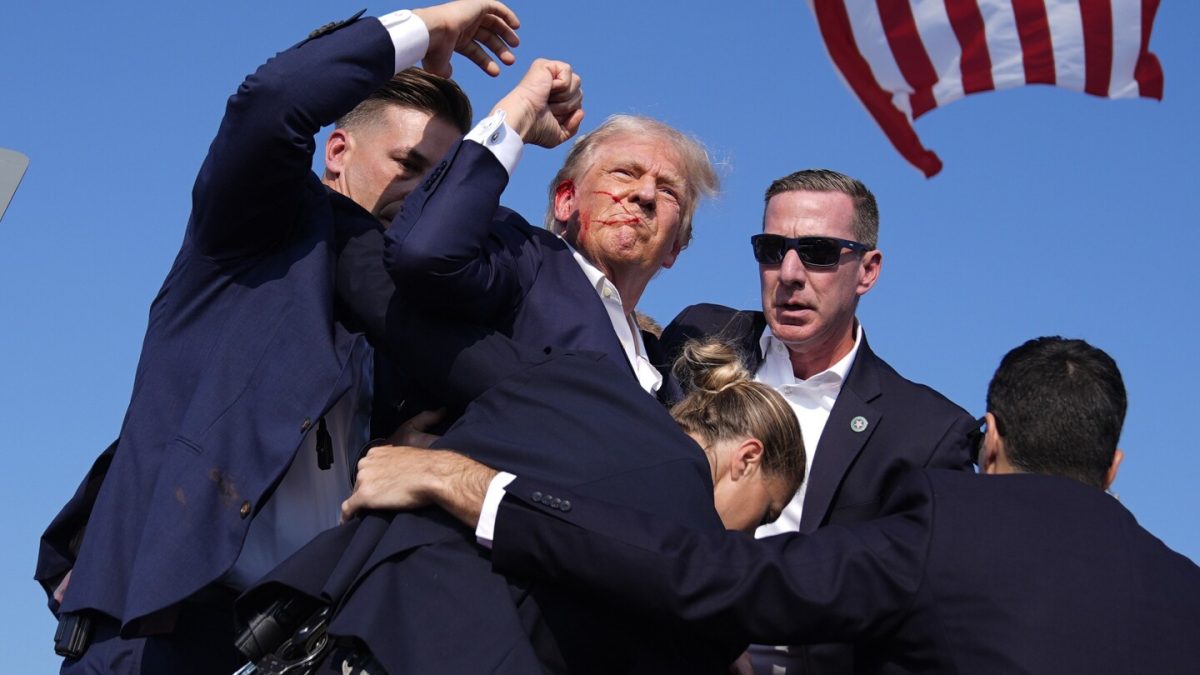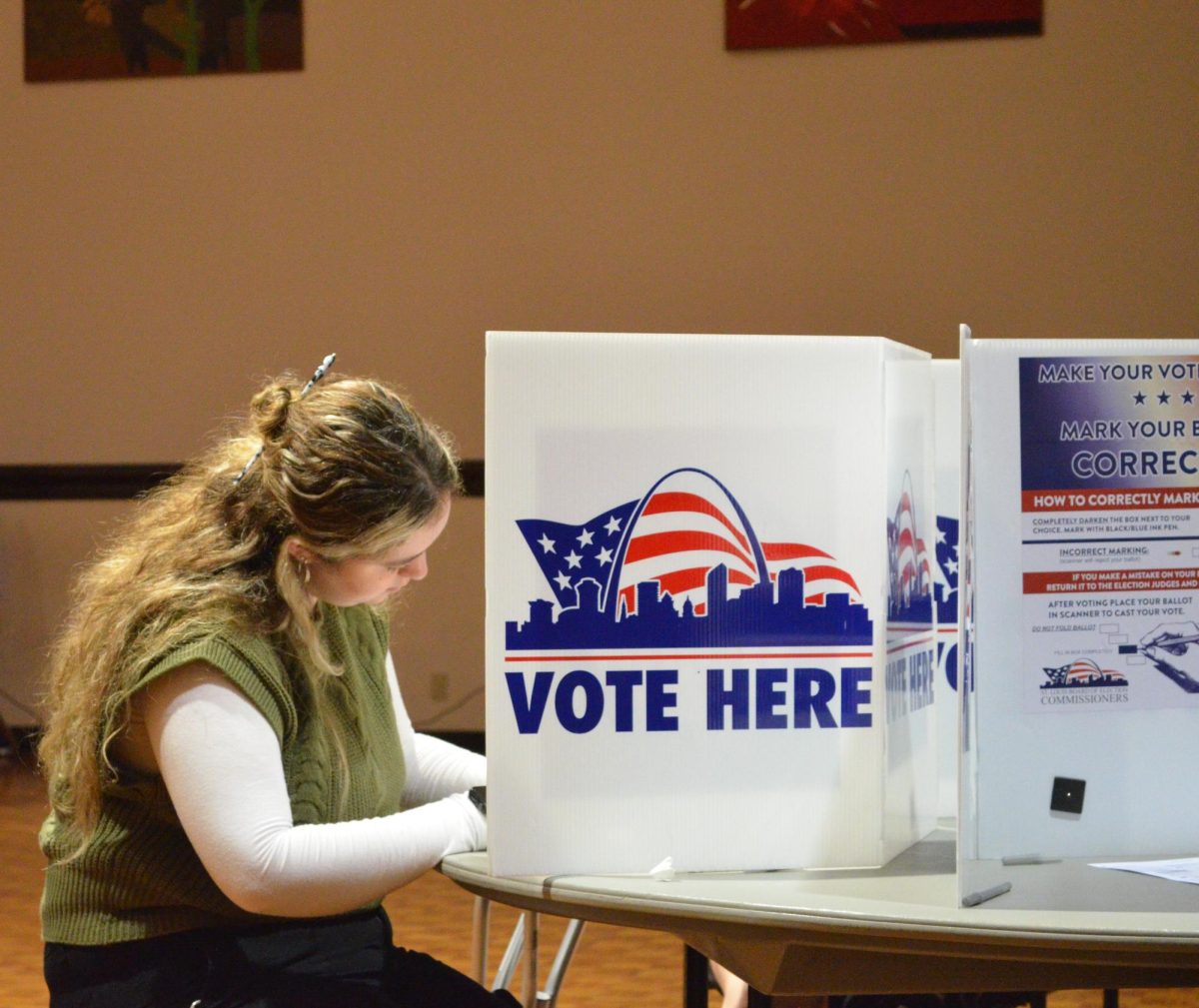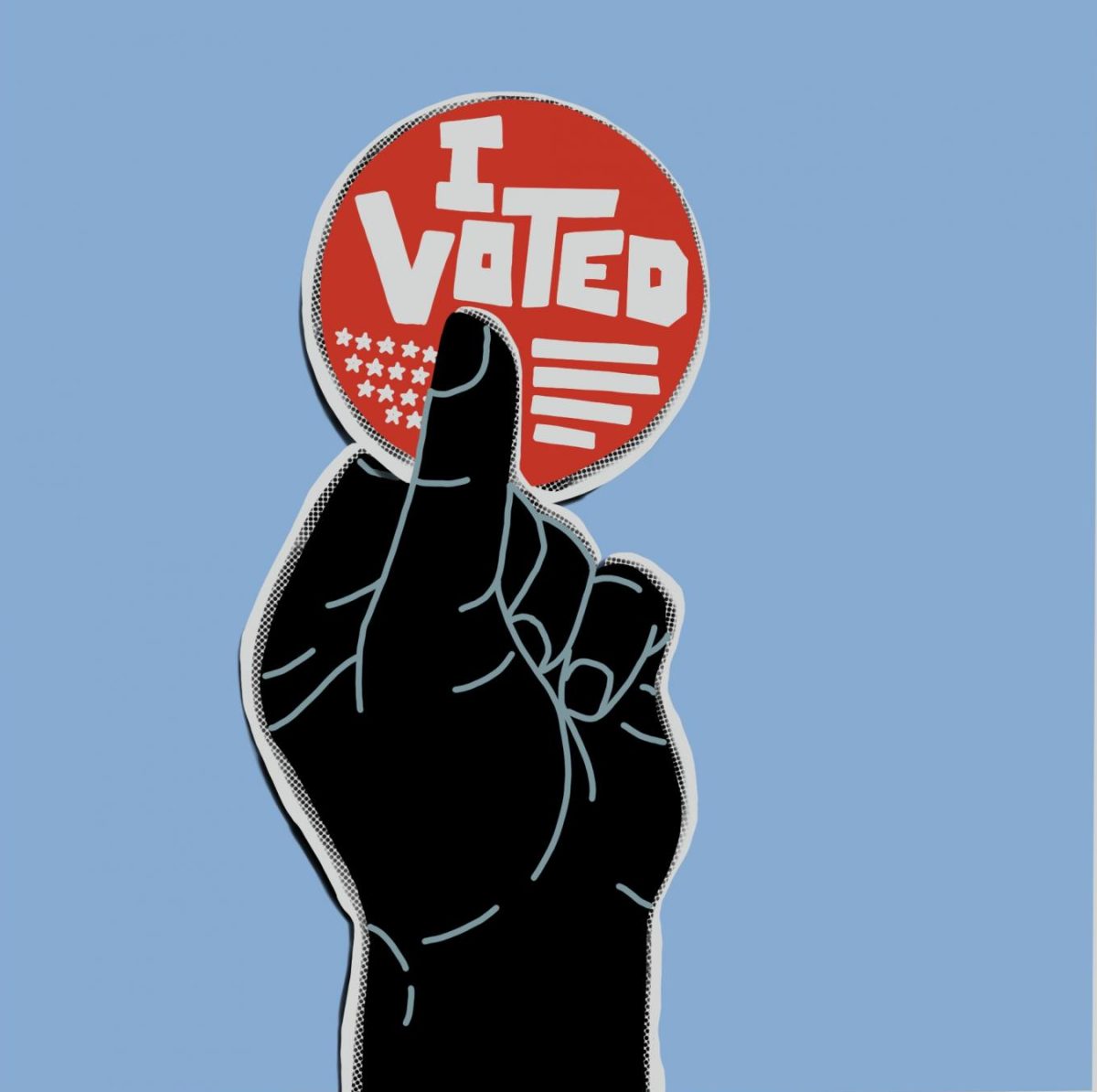Eight men took the stage at the third annual UnMasc event on Oct. 5, prepared to get personal and share their experiences with masculinity. The group of men wore masks, made to represent the layers they peeled back to uncover their stories.
They then talked about grief, love, shame and self- acceptance to an audience of about 120 people.
“This event allows people, specifically those born male, to have a space to be vulnerable on stage and tell stories that change the narrative of what masculinity is and what it can be,” said Jermar Perry, executive director of the Village PATH and co-producer of the event.
Hosted by the Village PATH and Undo Bias at Saint Louis University’s Il Monastero Banquet Hall, UnMasc coincided with Domestic Violence Awareness and Prevention Month.
Alex Rafi, a filmmaker from Miami and an assistant professor of media production at SLU, reflected on his childhood and how he learned to care for his family after his father left.
Rafi was especially close to his grandmother, and said taking care of her taught him about service and love. After she passed, Rafi said he embraced his emotions, and now he weaves lessons from his grandmother into some of his film projects.
“You don’t have to be perfect to keep going,” Rafi told attendees, adding that men don’t need permission to cry or be loved.
William Harrison, an artist from Belleville, Illinois, shared his story of “queering masculinity.”
Growing up, Harrison said he felt like masculinity was forced on him and often driven by violence. In college, Harrison took a queer theory class and realized he did not have to perform masculinity at all.
“I can just be me,” Harrison said.
Michael Parisi, a single father, spoke about raising two daughters alone after his wife left. Parisi described the pain of seeing his children hurt, especially when they asked why their mom wasn’t not around for birthdays.
Committed to making their future better, he tells his daughters, “Your mom loves you, and you love her.”
For Zulary Rueda, a 30-year-old who attended the event for the first time, Parisi’s story resonated with her experiences as a recently divorced woman.
“I think it’s the first time I’ve seen men be vulnerable. It gave me hope,” Rueda said.
Like other storytellers, screenwriter Kaleb Moses talked about how his father shaped his life. Growing up, he struggled with trying to please his dad and felt like he never measured up, even when he brought home good grades.
Moses’ story also explored his journey with his sexuality, explaining how he tried to hide that he was gay and tried to “pray the gay away.”
When he came out, his father reassured him that he still loves him. “Father, I know you love me,” Moses said.
UnMasc was sponsored by the Regional Arts Commission of St. Louis, the Bullet and Injury Related Clinic, Freedom Community Center, SLU’s Department of Women’s and Gender Studies and Safe Connections.
After sharing their stories, the storytellers received a standing ovation and flowers, followed by a Q&A session.



